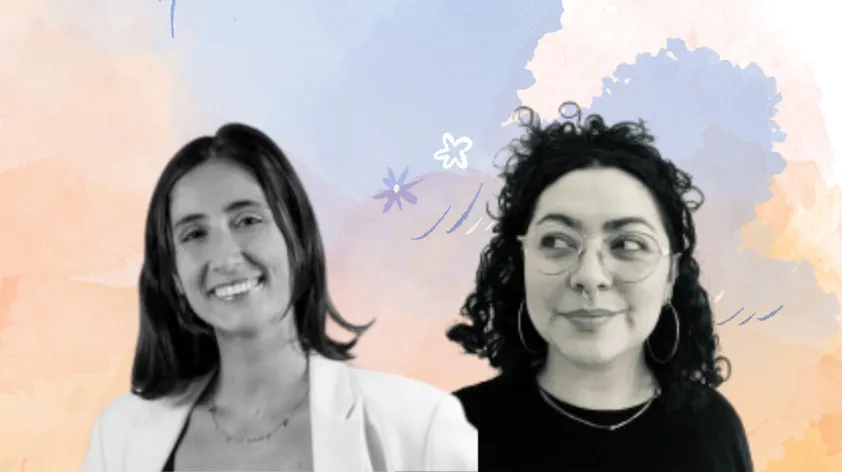Philanthropy and development have a localization problem. Only 13% of international grant dollars from U.S. foundations go directly to organizations based in the country where programs are implemented.
Justice Funds is trying to change that. The new venture, launched in October, has created a bi-weekly newsletter that aggregates grant funding opportunities for activists in the Global South. All of the grant opportunities focus on social justice; very few of them require a 501(c)3 eligibility.
They’ve built a following of 6,000 LinkedIn and newsletter subscribers since they launched four months ago. A recent newsletter shared opportunities from public and private sources like Mama Cash's Resilience Fund.
We spoke with Justice Funds’ founders to hear about their vision. Julia Chacur, based in Brazil, is a multihyphenate – an editor at Black Fox Philanthropy, fundraising consultant, and recently a two-time social entrepreneur: last fall she also launched No Visa Jobs, a job board for gigs that don't require a US, EU or UK visa. Paz Romero is an Argentinian activist who has spent her life fighting gender-based violence. Her experience running a formal NGO opened her eyes to the challenges of fundraising, and inspired her and Julia to team up.
We talked about what they've accomplished so far and where they're headed.
Why did you create Justice Funds?
We founded Justice Funds after we heard so many people complaining about the difficulty of navigating funding opportunities.
We saw there wasn’t anyone curating grant funding opportunities, for free, for a Global South audience. When you look at so many of the newsletters, LinkedIn pages, and other platforms sharing grant opportunities or fellowships – you’ll see twenty opportunities, but you have to be from the U.S. or Europe to be eligible for 15 of them. There are some great resources that share funding opportunities for the Global South, but not many are free.
So we wanted to improve the communications ecosystem, and to create a space where people from the Global South could go and learn about grant opportunities and know they are eligible.
What are some of the barriers to funding opportunities being shared widely?
There are certainly language barriers, and part of the problem is that different networks and social networks that people operate in – someone doing work on the ground is not necessarily on LinkedIn reading foundations’ posts about grant opportunities. But often the problem is that people doing social just work here often don’t know that funding exists – they don’t know it’s a possibility.
We saw an opportunity for people like the two of us, who have relationships with movements in groups in the Global South and also in the Global North, to make a bridge, and facilitate communication for both sides.
Although it’s not only a communication problem. There's a root problem with everything related to social justice – in Latin America, in Argentina, in the Global South – it’s the concept of volunteerism.
There’s a growing recognition of “double labor” – for instance, a mother who has a job and who is also taking care of her children. We need to talk about how social justice and activism work is another form of labor. If you’re a mother who is working, taking care of your children, and also campaigning for women’s rights, or the environment, that’s “triple labor”.
It’s important we acknowledge that triple labor, but the problem is that activists and movement leaders often don’t see themselves as “workers”. We are trying to change that extractive mindset – to say: you are a worker, you deserve money for that work, your community effort needs to be sustainable.
It’s not always easy. Sometimes when you go to someone doing social justice work and tell them “There’s a foundation in the United States, and they’re willing to fund you”, they’ll be skeptical. At first.
In the past few months, USAID has released more data about their localization agenda, and progress is slow – data shows that only 5 or 10 percent of dollars are reaching local NGOs, far from the 25% goal. What can be done about that?
You see a lot of commitments being made, but not money actually moving toward the goal. When money does get here, it still usually still goes through a large international foundation.
We have shared some USAID opportunities already in a recent newsletter. We also understand that what we are doing is just one element of a complex puzzle – there are other organizations doing important work to drive localization, like the Movement for Community-Led Development and ShiftThePower.
What’s next – how do you plan to grow?
We launched two months ago, in the beginning of December, but we’ve already reached 65,000 people through LinkedIn and our newsletters. We want to start a WhatsApp group because we know that’s the way that people communicate.
We’re working on getting more demographic information. Right now we have this sign up form, and the only question we ask after your email address is: where do you come from, what’s your region? And the vast majority is from the Global South – which makes us very happy.




.webp)
%202.png)
%20(1280%20x%20720%20px)%20(2).webp)





